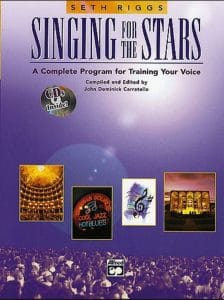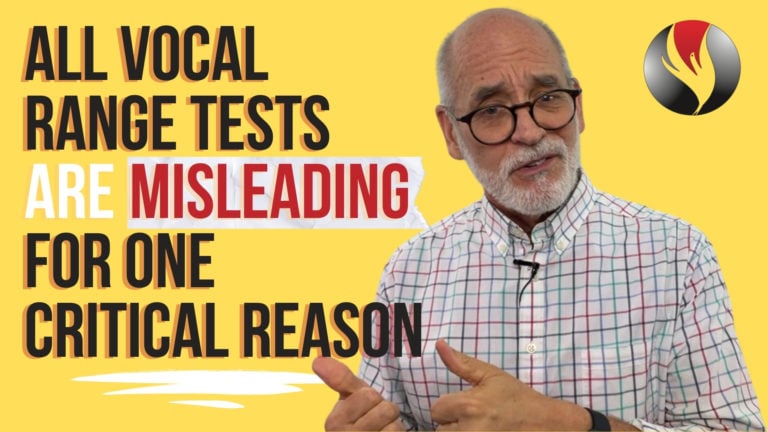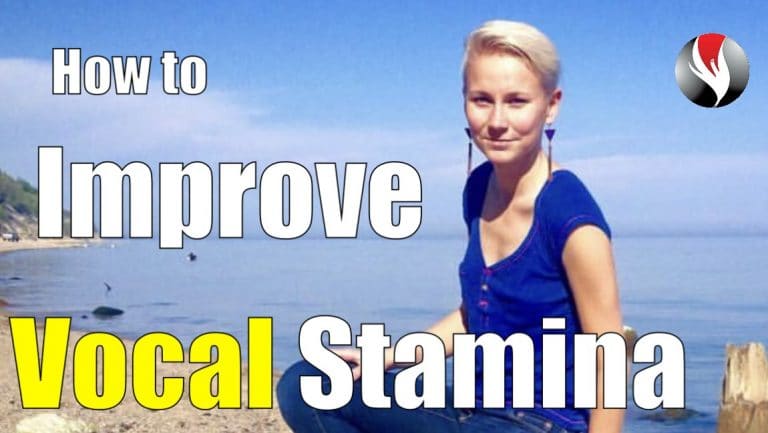Ep.50: How to Improve Your Singing? Balance!
This is a video about how to improve your singing. We all want to sound great when we sing. We want to be impressive, we want to inspire and emotionally connect with our audience.
Inside this video I’m going to show you why you have problems and how to improve your singing.
Let’s define what great singing sounds like.
I can’t.
Because what sounds good to me may not sound good to you. Multiply that times millions of people, genres, your age, personal tastes and the result will be a massive disagreement about what great singing sounds like.
Instead, I’ll define great singing by describing physically what causes great singing.
Great singing happens when your voice is balanced!
In his book, Singing for the Stars, Seth Riggs says balance in singing,
His definition includes 5 things:
-
Air Flow
-
Vocal cord tension
-
Tone Production
-
All done with the least amount of effort
-
From your Speech level
How are these things, done with the least amount of effort from your speech level?
First, I believe it means doing the least for the most result. What is the minimum I can do for the maximum best result?
Second, It means you produce air flow, vocal cord tension and tone production the same way you do when you speak, which, for most of us, is in a relaxed and easy manner.
Air flow, vocal cord tension and tone production all combine in the larynx (voice box). This is where your vocal cords are located.
When you speak, the larynx is relaxed and resting comfortably in your neck, or at speech level.
If we do this when we sing, we have a balanced voice. The results is we can “sing in an easy, connected manner from your chest voice through your head voice.” (Ibid)
Our singing voice becomes unbalanced when we lose our speech level.
Take air flow for example. When you speak comfortably there’s just enough air flow, steady and consistent to produce tone and words in an easy, comfortable manner.
But when you’re singing, suppose you started pushing too much air. It’s so much that the vocal cords have to let too much air escape, or they have to over tighten to hold the extra air back.
Now your air flow is out of balance with the vocal cords. This causes the cords to be too tight or too loose. This causes the larynx to rise, which also affects your tone which becomes too breathy or too squeezed.
Your singing voice is out of balance and no longer at speech level.
Picture a teeter-totter. If you have air flow on one side of the teeter-totter and Vocal Cords and Tone Production and Larynx on the other side, if they are balanced the teeter-totter is level. They balance each other perfectly. But if air is out of balance with too much air or too little air, the voice is out of balance.
When air flow, vocal cord tension, tone production and the larynx each is balanced, then combined, they cause a balanced voice. The results is great singing.
How to Improve Your Voice
How to improve your voice? This video, Episode 50, represents a series of episodes about improving your voice by balancing the voice.
I’ll discuss ways to improve your voice by fixing the problems areas that are out of balance. I’ll talk more about what might be out of balance, why and what you can do to fix it. Is it about Air Flow? Vocal Cord Tension? Tone Production? Larynx?
Here are some questions and possible balance issues to work on.
Do I sound breathy? Air flow might be too much. Or vocal cord tension not enough.
Do I run out of air too fast? Air flow might be too much. Or vocal cord tension not enough.
Do I feel strain when I sing higher? Air flow might be too much. Or words (vowels) I’m using too open and distorted.
Do I break when I sing higher? Air flow might be too much. Air flow might be too little. Vocal cords may be too tense. Vocal cords may not be tense enough.
The vocal test on the home page of PowerToSing.com is designed to identify where the voice is out of balance and provide exercises to balance your voice.
Go to PowerToSing.com and take the vocal test, which I call the PowerTest. Take the quiz and discover your vocal type. Then go to the Knowledge Center and watch the videos for your vocal type.
Download the free exercises that are designed to help you balance your voice.
I’m Chuck Gilmore with Power To Sing. With a balanced voice you can sing higher with beauty, confidence and power.
I’ll see you inside the next video.














Responses